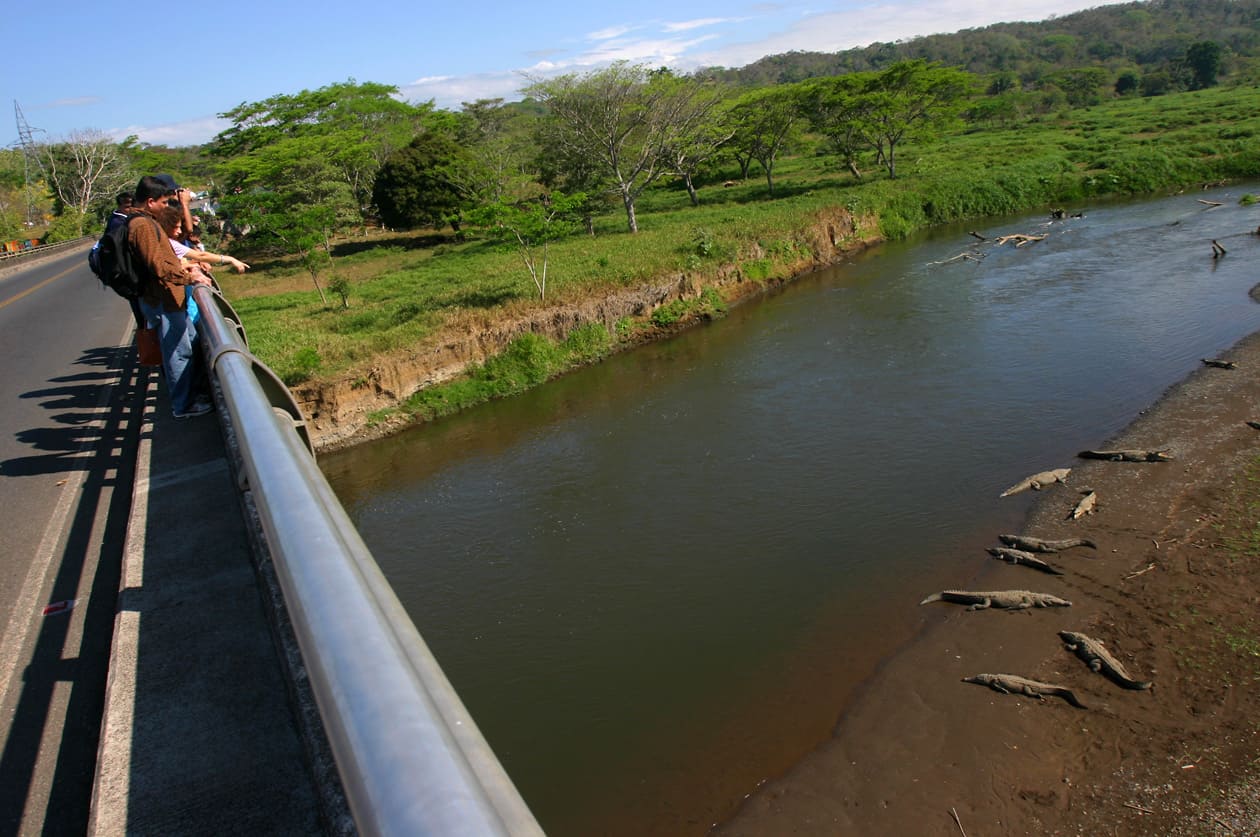The practices of some tour guides who feed the crocodiles in the Tarcoles River are putting the tourists at risk, as they are invited to be very close to the animals. This river is one of the most popular spots in the country and is visited by hundreds of travelers who enjoy watching crocodiles.
However, in some cases, people are also encouraged to feed the reptiles, despite the risk this represents.
Not only is it a very dangerous activity, where both tour guides and tourists could be severely injured or even killed, it is illegal. The authorities of the Central Pacific Conservation Area (Acopac) have reaffirmed on multiple occasions that it is strictly prohibited to feed the animals.
The National System of Conservation Areas (Sinac) has received several complaints because, although people know that these practices are prohibited, they continue to engage in them.
SINAC authorities decided to carry out an inspection tour in the area in order to sanction those who promote these illegal activities.
“At least five complaints have been filed with the Garabito Prosecutor’s Office on this issue. We know that it is an illegal activity, at this time the wildlife legislation does not allow it; in addition, it is a risk for tourists,” said Rafael Gutiérrez, executive director of Sinac.
“Feeding crocodiles exposes the lives of many tourists, as well as the person who is feeding the animal and is obviously causing a disturbance; Sinac does not agree with this type of activity, so it is promoting a change in the sector,” he added.
There have been many videos and photographs on social media showing people who are up-close feeding crocodiles. Authorities have explained numerous times this is an irresponsible and reckless behavior.
“People who are aware of the presence of a predator like this should take the necessary precautions to avoid entering the habitat where the animal is living, taking into account that it is an animal that in certain situations can be dangerous,” said Laura Porras, of the International Institute for Wildlife Conservation and Management of the National University.
Experts are also concerned about the possible disruptions to the ecosystem caused by these practices.






